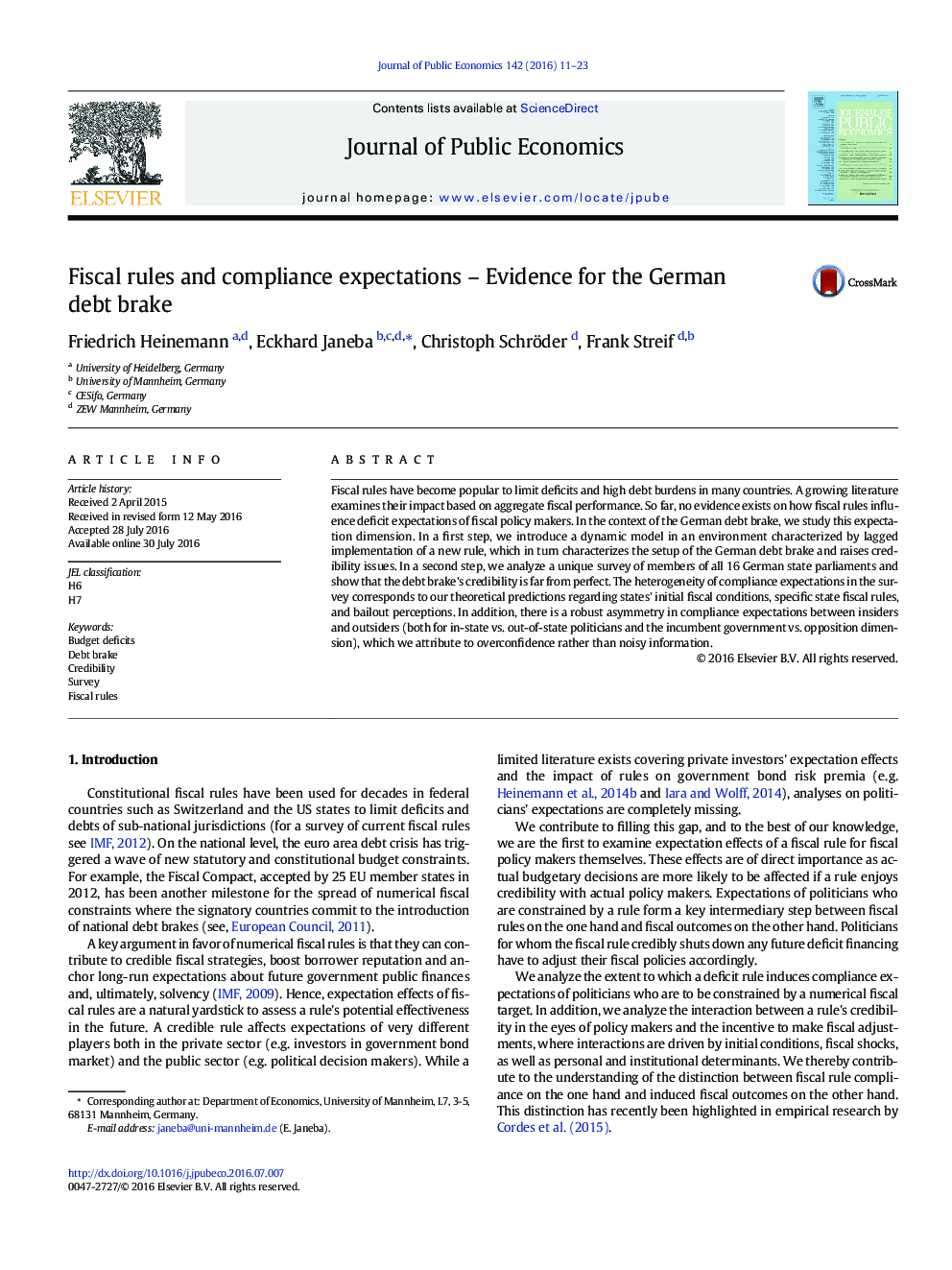| Article ID | Journal | Published Year | Pages | File Type |
|---|---|---|---|---|
| 969643 | Journal of Public Economics | 2016 | 13 Pages |
•Examines theoretically and empirically how fiscal rules influence deficit expectations of policy makers•Theoretical model highlights the role of initial fiscal conditions and bailout expectations for compliance•Empirical analysis tests hypotheses from theoretical model using survey data from 639 members of German state parliaments•Perceptions about compliance differ between in state and out of state politicians due to overconfidence
Fiscal rules have become popular to limit deficits and high debt burdens in many countries. A growing literature examines their impact based on aggregate fiscal performance. So far, no evidence exists on how fiscal rules influence deficit expectations of fiscal policy makers. In the context of the German debt brake, we study this expectation dimension. In a first step, we introduce a dynamic model in an environment characterized by lagged implementation of a new rule, which in turn characterizes the setup of the German debt brake and raises credibility issues. In a second step, we analyze a unique survey of members of all 16 German state parliaments and show that the debt brake's credibility is far from perfect. The heterogeneity of compliance expectations in the survey corresponds to our theoretical predictions regarding states' initial fiscal conditions, specific state fiscal rules, and bailout perceptions. In addition, there is a robust asymmetry in compliance expectations between insiders and outsiders (both for in-state vs. out-of-state politicians and the incumbent government vs. opposition dimension), which we attribute to overconfidence rather than noisy information.
